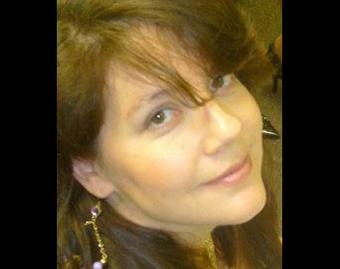News Analyst Examines Media Failures on Catholic Issues
By Kevin J. Jones
Washington D.C., Jun 16, 2012 / 04:47 pm (CNA).- News media coverage has "ranged from imbalanced to near-fraudulent" in its contrasting reports on the religious freedom rallies and the controversy over Vatican action towards the Leadership Conference of Women Religious, media observer Mollie Hemingway says. "While the dissenters against the HHS mandate are marginalized by the media, the dissenters against the Vatican are uplifted," she told CNA June 13. "Dissent against the Obama administration seems to be questioned while there are few things the media like more than dissent against the Vatican." Hemingway, a reporter who writes on the religion news analysis blog GetReligion.org, said 2012 "has not been a great year for media coverage of religious news." She suggested this is because it is an election year "and everyone gets more partisan." The first six months of the year have witnessed several major Catholic news stories. The Department of Health and Human Services in January mandated that most employers provide insurance coverage for sterilization and contraception, including some abortion-causing drugs, as "preventive care." The mandate won praise from feminist groups, Planned Parenthood and secularists. However, the Catholic bishops and other faith leaders objected that the mandate requires employers to provide coverage for procedures and drugs to which they have religious and moral objections. The bishops particularly objected that the mandate's religious employer exemption is so narrow that it will not include many Catholic colleges, charities and health care systems. They also said a proposed compromise from the Obama administration is unacceptable. Recently, the news media have focused on the reaction to a doctrinal assessment by the Vatican's Congregation for the Doctrine of the Faith concerning the Leadership Conference of Women Religious. The assessment found a "crisis" of belief and "serious doctrinal problems" in the leadership organization, whose members represent 1,500 religious congregations and some 57,000 women religious. The LCWR argued that the assessment process was "flawed." Hemingway saw differences in how the media has dedicated time to covering the stories and how the issues are framed by it. She noted that on the day of the June 8 Stand Up for Religious Freedom rallies, National Public Radio dedicated 14 minutes of "scarce broadcast coverage" to highlight the religious sisters' organization but gave no coverage to the rallies. When the controversy over the HHS mandate first began in January, media attention was "slight and slow, if it was there at all." News coverage similarly neglected the religious freedom rallies held in March. If they did cover the rallies, many media outlets "diminished the religious liberty concerns expressed by attendees." "Some media outlets took to scare-quoting the terms 'religious freedom' and 'religious liberty,' to show how much they disputed these concerns," Hemingway told CNA. She suggested that the news media can get "carried away" by "a desire to turn everything into a partisan fight." While reports on the Leadership Conference of Women Religious pointed out "how helpful the LCWR had been to President Obama and Democratic supporters of Obamacare," very few accurately described the decades-old roots of the conflict between the conference and the Vatican, she said. "They mischaracterized the actual words of the doctrinal assessment, stating wrongly that the Vatican had derided their social work," Hemingway continued. "One of my favorite media missteps was seeing a story about the Vatican crackdown accompanied by a picture of a bunch of habited nuns attending a Rick Santorum rally in Michigan." She said stories on the controversy "routinely" used pictures of traditionally dressed religious sisters, while LCWR members often do not wear traditional garb. Hemingway also saw problems in how the HHS mandate controversy has been covered as a battle about "access to contraception." This viewpoint "certainly matches the talking points of its supporters but doesn't accurately reflect the concerns of its opponents." Misstatements of fact have also marred the coverage. She said media outlets wrongly depicted a religious liberty hearing as a hearing on "birth control" and ignored the hearing's two female panelists "in favor of a narrative that no women were present." Other reports wrongly claimed that 98 percent of women take birth control. "Since the media's primary job is to inform and accurately describe opposing positions, they're failing and that failure hurts civil discourse," She said the disparity in coverage is "striking" when compared to the "major media onslaught" after the Susan G. Komen for the Cure breast cancer foundation briefly withdrew grant opportunities from Planned Parenthood, or to the "heavy and high profile coverage" of Georgetown University law student Sandra Fluke, who supported the HHS mandate. Hemingway did find some good examples of media coverage, like St. Louis Post-Dispatch reporter Tim Townsend's reporting on the local religious freedom rallies. She also had some advice for how reporters can improve. "I have no doubt that reporters have the best of intentions in covering these issues, but they need to expand their rolodexes to include better voices in their stories, redouble their efforts to frame stories fairly, put aside their partisan inclinations and reflexive defense of the Obama administration, and simply work to inform readers about what's going on," she said. "Journalists can and must do better. And news consumers should be aware that the media aren't always informed or thoughtful in the way they handle religion news."
|
.
Any original material on these pages is copyright © BishopAccountability.org 2004. Reproduce freely with attribution.
